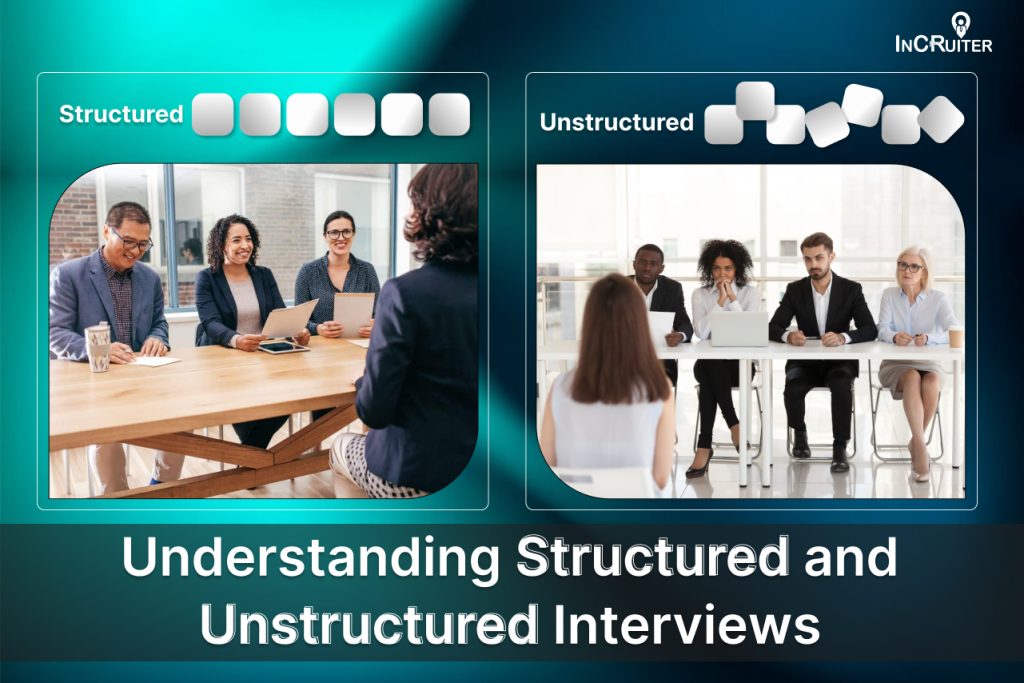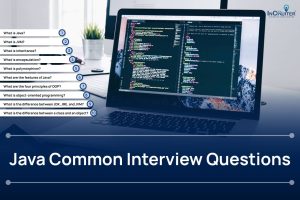
Companies often explore various methods to attract top talent, from tweaking the questions to adjusting the interview panels. But what if the key to success lies in the interview format you choose for your hiring process? The selection of the right interview format that is aligned with your business is not just important; it’s crucial. This is where a comprehensive understanding of structured and unstructured interviews can be a game-changer, as it can significantly enhance your hiring outcomes.
What are Structured Interviews?
As the name suggests, structured interviews refer to a structured and organized interview process. They consist of predetermined, close-ended questions, and every candidate receives identical questions with similar response options. It allows for consistency in the interview process and eliminates chaos and redundancy.
Also known as a patterned or planned interview, this interview method uses pre-set questions in the same sequence during each interview.
What are Unstructured Interviews?
Unstructured interviews, on the contrary, do not follow a fixed format. It is a qualitative research method, in which the questions are prepared during the interview. Unstructured interview process usually offers an informal approach where a conversation takes place between the interviewer and interviewee. Based on the responses, the interviewer asks another question.
It is more conversational, less formal, and usually more relaxed for both parties. This interview method helps judge a candidate’s presence of mind, communication skills, and ability to think well and fast.
Also Read: Recruitment Automation: What is it and How Does it Work?
Three Differences Between a Structured Interview and an Unstructured Interview

Here are some major differences between structured and unstructured interview processes:
Standardized Questions
Modern AI interview software enables a structured interview process where questions are predetermined and fixed in advance. The interview process follows a set of questions common to all candidates. In contrast, an unstructured interview features questions that are rare and not prearranged. In this interview process, the interviewer asks questions at the moment.
Quantitative and Qualitative Data
In a structured interview process, pre-planned questions are consistently asked to candidates, resulting in quantitative data collection. However, in unstructured interviews, different questions are asked to each candidate which leads to the collection of qualitative data. Recruiters can choose their preferred interview format based on the kind of data they are seeking.
Open Ended and Closed Discussions
The questions asked to candidates are close ended in a structured interview format. Such questions demand a certain piece of information from the applicants. Whereas, in unstructured interviews, the questions are open ended and offer possibilities for discussions. The candidate is free to give thoughtful answers and the interviewer can better judge the candidate.
Also Read: Ever-growing demand for interview-as-a-service market post pandemic
Conclusion
Structured and unstructured interviews have their own advantages and differences. Both the interview formats offer a seamless interviewing experience thus giving results. However, depending on your company’s requirements, you can decide which interview format suits you the best.
Using a systematic approach for the first round of interviews yields better results, and further going with an unstructured interview format will be an optimal strategy. No matter how different both interview formats are, they are equally important for an efficient recruitment process.
Frequently Asked Questions
Q. Which interview format method is best for the initial round of interviews?
Ans: Structured interview format is best for screening candidates in the initial rounds of interviews, as recruiters are looking for candidates that fit their roles and requirements.
Q. What is the difference between structured and unstructured interviews?
Ans: Structured interviews use pre-set questions that ensure consistency throughout the interview process. Whereas unstructured interviews are more flexible, allowing spontaneous discussions based on candidate responses.
Q. What is the advantage of an unstructured interview?
Ans: Unstructured interviews offer scope for an open discussion that helps the interviewer understand the candidate better. In such an interview format, the interviewer can ask questions depending on the responses received and assess candidates better.
Ready to Transform Your Hiring Process?
Discover how our AI-powered interview platform can streamline your recruitment and find the best candidates faster.






